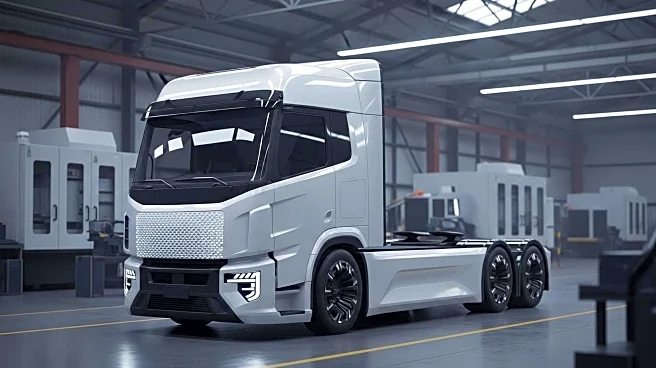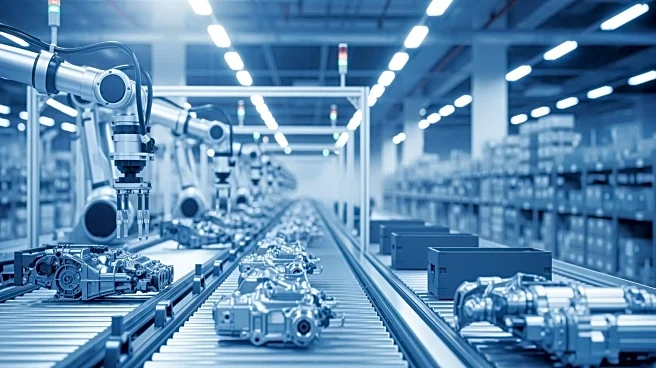What's Happening?
Traton, a subsidiary of Volkswagen, is accelerating its transition to electric vehicles (EVs) as part of its strategy to reduce emissions and meet growing market demand. The company, which includes brands like Scania, MAN, and International, has seen a significant increase in sales of its electric models. In the first half of 2025, Traton sold 1,250 electric trucks globally, doubling its sales from the same period last year. This growth positions Traton close to market leaders like Volvo. To support this expansion, MAN has opened a new factory line capable of assembling both electric and diesel trucks, which is expected to help reduce production costs. Additionally, Traton is part of an industry partnership called Milence, which is working to install hundreds of high-powered chargers across Europe, capable of recharging heavy-duty trucks in 45 minutes or less.
Why It's Important?
The shift towards electric trucks is crucial in reducing the environmental impact of freight transportation, which accounts for about 8% of global greenhouse gas emissions. With road freight demand expected to triple by 2050, transitioning to electric vehicles could significantly lower emissions, as battery-electric trucks in Europe currently reduce emissions by an average of 63% compared to diesel trucks. Traton's efforts to expand its electric truck production and charging infrastructure are vital steps in addressing climate change and meeting future transportation needs. This transition not only benefits the environment but also positions Traton as a competitive player in the growing electric vehicle market, potentially influencing other manufacturers to accelerate their own EV initiatives.
What's Next?
Traton's continued investment in electric vehicle technology and infrastructure suggests a commitment to long-term growth in the EV sector. As the company ramps up production and expands its charging network, it may influence industry standards and encourage further adoption of electric trucks. The success of these initiatives could lead to increased market share and set a precedent for other manufacturers. Additionally, the development of more efficient and cost-effective electric trucks could drive down prices, making them more accessible to a broader range of customers.
Beyond the Headlines
The transition to electric trucks also raises questions about the sustainability of battery production and the sources of electricity used to power these vehicles. While electric trucks offer significant emissions reductions, the environmental impact of mining and manufacturing processes, as well as the reliance on renewable energy sources, will be critical factors in their overall sustainability. Traton's efforts to address these challenges could influence industry practices and contribute to a more sustainable transportation sector.









